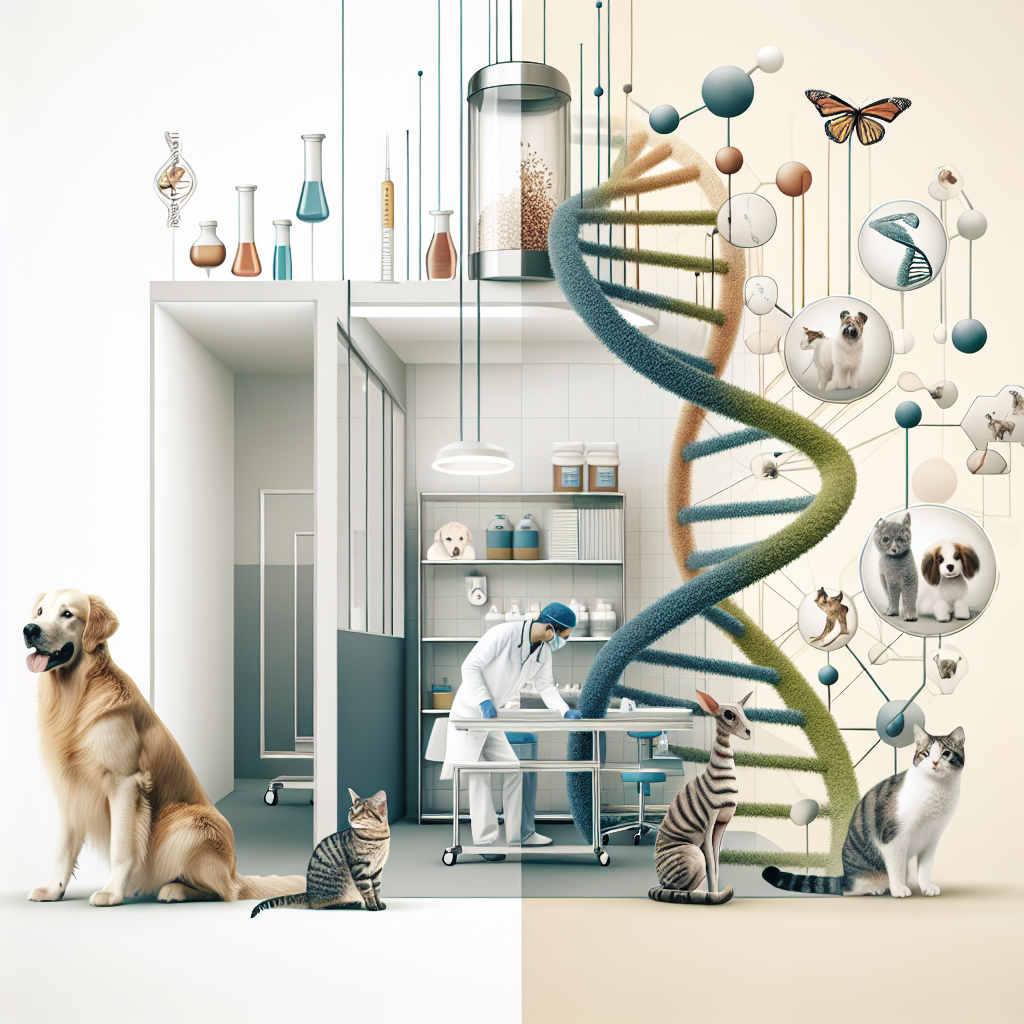
How Does Gene Therapy Revolutionize Veterinary Medicine? Unraveling the Top 5 Benefits
1
2
0
Gene therapy has emerged as a groundbreaking technique in the realm of veterinary medicine, offering innovative solutions to various health challenges faced by our beloved animal companions. By delving into the intricate world of genetics, veterinary professionals can now harness the power of gene therapy to provide tailored treatments that were once deemed impossible. Let's explore the top 5 benefits that gene therapy brings to the forefront of veterinary care.
1. Precision Medicine
Gene therapy in veterinary medicine enables a personalized approach to treatment. By targeting specific genes responsible for diseases or abnormalities, veterinarians can administer interventions that directly address the underlying genetic cause. This precision medicine not only enhances treatment efficacy but also minimizes side effects, leading to improved outcomes for our furry friends.
2. Treatment of Genetic Disorders
One of the most significant advantages of gene therapy is its ability to combat genetic disorders in animals. By introducing therapeutic genes or correcting faulty ones, this approach holds the promise of treating inherited conditions that were previously considered incurable. From hereditary eye diseases to metabolic disorders, gene therapy opens up new avenues for managing these challenging conditions.

3. Enhanced Immune Responses
Through gene therapy, veterinarians can bolster an animal's immune system, enabling them to mount stronger defenses against infections and diseases. By manipulating immune response genes, this approach can provide long-lasting protection against pathogens, making pets less susceptible to illnesses and enhancing their overall well-being.
4. Improved Wound Healing
Gene therapy has shown remarkable potential in expediting the wound healing process in animals. By introducing genes that promote tissue regeneration and repair, veterinarians can accelerate healing times for injuries, surgical incisions, and other traumatic wounds. This advancement not only enhances recovery but also reduces the risk of complications associated with prolonged healing periods.
5. Prolonged Lifespan and Quality of Life
Ultimately, gene therapy contributes to extending the lifespan and improving the quality of life for our animal companions. By addressing genetic predispositions to certain ailments and enhancing overall health, this transformative approach helps our pets live longer, healthier lives, filled with vitality and joy.
In conclusion, gene therapy stands at the forefront of veterinary innovation, offering a multitude of benefits that revolutionize the way we approach animal healthcare. As research and technology continue to advance, the potential for gene therapy to shape the future of veterinary medicine remains both profound and promising. Through its transformative capabilities, gene therapy paves the way for a brighter, healthier future for our cherished pets.
Let us embrace this incredible journey of discovery and continue to unlock the vast potential of gene therapy in veterinary medicine. Our furry friends deserve nothing less than the very best care, and gene therapy is undoubtedly a beacon of hope shining brightly on the horizon of animal health and well-being.
So here's to a future where gene therapy transforms the lives of our beloved pets, one treatment at a time!





